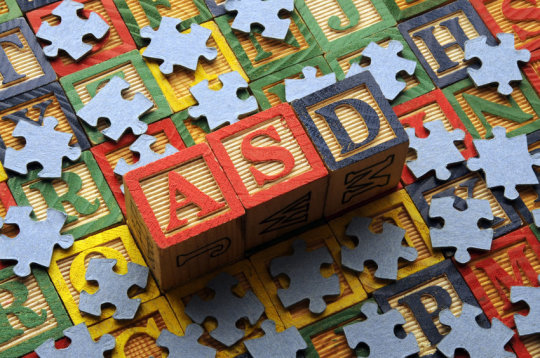Autism spectrum disorder (ASD) is a complex developmental disorder that can cause problems with thinking, feeling, language and the ability to relate to others. It is a neurological disorder, which means it affects the functioning of the brain. The effects of autism and the severity of symptoms are different in each person.
Autism differs from person to person in severity and combinations of symptoms. There is a great range of abilities and characteristics of children with autism spectrum disorders — no two children appear or behave the same way. Symptoms can range from mild to severe and often change over time.
- Communication problems: including difficulty using or understanding language. Some children with autism focus their attention and conversation on a few topic areas, some frequently repeat phrases and some have very limited speech.
- Difficulty relating to people, things and events: including trouble making friends and interacting with people, difficulty reading facial expressions and not making eye contact.
- Repetitive body movements or behaviors: such as hand flapping or repeating sounds or phrases.
Many children with autism are attentive to routines and sameness and have difficulty adjusting to unfamiliar surroundings or changes in routine. Many people with autism have normal cognitive skills, while others have cognitive challenges. Some are at greater risk for some medical conditions – such as sleep problems and seizures.

